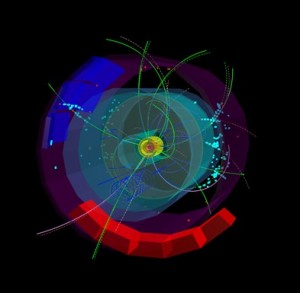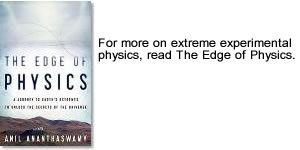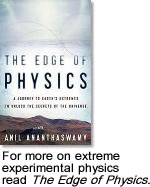Living next door to Alice: closest you can get to a big bang

THE ALICE experiment at the Large Hadron Collider has seen the highest temperatures ever created in an experiment, according to a press release from the Science and Technology Facilities Council, UK. On 7 November, the LHC collided lead ions (instead of the usual protons against protons), and this produced what are referred to as mini big bangs: dense fireballs that have temperatures of about 10 trillion degrees.
At such temperatures and energies, the nuclei of atoms melt into a mix of their constituents: quarks and gluons. The fireball is known as a quark-gluon plasma.
The formation of the plasma is a key prediction of the extremely successful theory of quantum chromodynamics (QCD), which tells us that with increasing energy scales (or as we go back to earlier and earlier times in the universe’s history), the strength of strong interactions falls asymptotically to zero. This discovery of “asymptotic freedom” is what resulted in a Nobel Prize for David Politzer, Frank Wilczek and David Gross in 2004.
The quark-gluon plasma has been studied in detail at the Relativistic Heavy Ion Collider (RHIC) at Brookhaven, which smashes gold ions head-on. In Feb 2010, RHIC researchers reported the creation of a plasma that had temperatures of 4 trillion degrees C.
Now, with a 287 TeV beam (3.5 TeV x 82, the charge of lead ions), the LHC’s lead ions are colliding with an energy about 13.5 times greater than what has been achieved at RHIC. The resultant plasma fireballs will allow physicists using the 10,000-tonne ALICE to study the universe as it was about a millionth of a second after the big bang.
One can only wonder about what surprises are in store. At RHIC, the biggest surprise was that the quark-gluon plasma, instead of being a gas acts like a perfect liquid.



1 comment
[...] This post was mentioned on Twitter by Takayuki Kawamoto, Anil Ananthaswamy. Anil Ananthaswamy said: Mini big bangs reported inside ALICE: http://edgeofphysics.com/blog/living-next-door-to-alice-closest-you-can-get-to-a-big-bang [...]